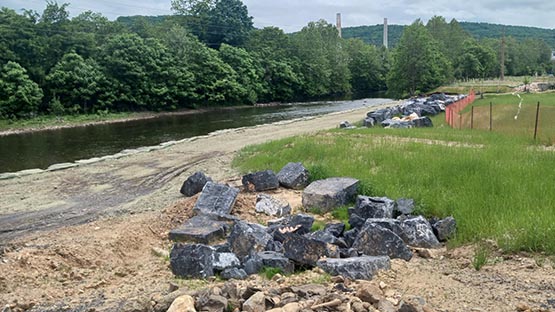
[email protected]
You listen to Republicans, and you’d think that the only thing we need to do to address our current fuel and energy crisis is drill, drill, drill and drill some more – even if the Department of Energy, the Bush administration’s Department of Energy, that is, has done its part to throw serious doubt into the idea that drilling would do much of anything to alleviate the pain that we’re all feeling right now anytime soon and into the foreseeable future.
You listen to Democrats, then, and you’d think that the thing that we need to do is invest in alternative energies, and that will solve all of our problems – and though they might be right on that, eventually, their eventually isn’t necessarily any sooner in terms of coming to fruition than what the Republicans are trying to get us to buy on their side.
To me, the answer is plainly obvious. We should’ve done something about this 25 years ago, and we wouldn’t be facing $4-a-gallon prices at the pump and electric and winter-heating bills that are figuratively and literally through the roof. But since we can’t go back in time and make it all better retroactively, we have to ask ourselves the hard question. Of course, it would be nice if we could all agree on what that hard question is.
“I believe that anyone who says that we can achieve energy independence in this country without more nuclear power, without more offshore drilling, without more clean coal, that individual either doesn’t have the experience to understand the problem that we’re faced with or isn’t being straightforward with the American people,” Seventh District Republican Congressman Eric Cantor said in a conference call arranged by the John McCain Republican presidential campaign last week, not surprisingly not straying too far from the McCain line on energy, given that Cantor is being talked about as being on the short list of possible McCain vice-presidential nominees.
If only McCain himself would push this more comprehensive approach in his stump speeches and TV and radio ads. You go to the McCain website and you’ll actually see something that resembles an across-the-board energy plan that includes new onshore and offshore domestic drilling, investments in new alternative energies and conservation measures aimed at promoting energy efficiency. Which is to say, not much in the way of difference between the McCain platform and the one being advocated by Democrat Barack Obama, who has come under fire from McCain backers because his vision of a comprehensive energy strategy doesn’t include strenuous enough shilling for new drilling for their liking.
And maybe that’s the issue here in this most nuanced of debates where we all seem to agree on the big picture that we need to do something different than what we’re doing now, but can’t seem to agree on how we can bridge from where we are now with $4-a-gallon gas and energy bills spiking 20 percent to that magical date far off into the future where we have things figured out.
“Clearly we need to do a whole lot more, and what we’ve seen is fairly typical from Washington, which is that the Republicans blame environmentalists, and the Democrats blame oil executives, and nothing gets done,” Fifth District Democratic Party congressional nominee Tom Perriello told me last week. “Both of those are issues that we’ve got to deal with. Speculation, the weak U.S. dollar because we don’t balance the budget, and supply and demand. We’ve got to do the whole thing.”
“Complex issues require complex solutions,” Sixth District Democratic Party nominee Sam Rasoul told me. “Fossil fuels and oil make up a vast majority of our energy resources right now, so the solution is going to have to include fossil fuels for decades to come. The question is, where do we want to be putting our future dollars, and where do we want to be investing? What we want to be doing is taking away the tax breaks that we’re giving to Big Oil, the most profitable industry in the world, and putting that into firms that want to invest in alternative energy, so that we can have a diverse portfolio of alternative energies that cannot only help to boost our economy, create jobs, but it this also, in my opinion, a matter of national security.”
You’d never hear Sixth District Republican Congressman Bob Goodlatte come across that strongly on sticking it to Big Oil, but Goodlatte did feel compelled to offer a hedge on his support of drilling in the Arctic National Wildlife Refuge in a talk with local Republicans over the weekend in Staunton. “This is not in any way to neglect the prospect of moving to new technologies and addressing the environmental issues that we want to have addressed,” Goodlatte said. “Alternate forms of energy are very important. We have companies right here in this congressional district – wind turbines down in Salem, a company in Roanoke is producing new technology to help people conserve energy in their businesses and their homes by managing their electricity better. The nuclear-power industry is huge in Lynchburg – more than 5,000 jobs there related to that. That’s something that this legislation also promotes.”
Think about that. If I hadn’t told you that it was Goodlatte who had said those words, I could’ve attributed them to Rasoul and you probably wouldn’t have known the difference. And that to me is what is most interesting about where we are in this national discussion of our energy future right now. We seem to agree on even the fine points, and yet for some reason we think that there’s some sort of huge divide on what to do next to get things moving in the direction of a solution.
Perhaps we could get out of our own way. There’s a new idea. I dunno if I see it happening in the middle of a campaign season, but it might be worth a try.










